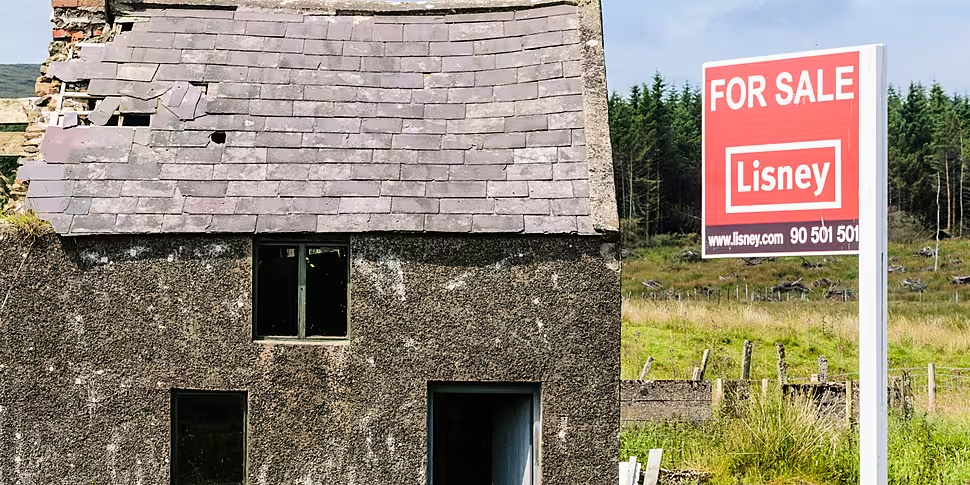Converting a vacant property into a home requires more paperwork than building a new house, an architect has said.
It comes as 1,224 vacant or derelict properties have been approved under the Urban Regeneration and Development Fund (URDF) in an update that will be brought to Cabinet later today.
The URDF currently part-funds 132 projects, made up of almost 400 subprojects, right across the country.
Grants ranging from €50,0000 up to €70,000 are available under the scheme.
JFOC Architects Director Claire McManus told Newstalk Breakfast there is no quick fix solution.
"The first thing to acknowledge is that it's a really difficult problem," she said.
"It's much, much easier to build 1,000 houses in a greenfield outside the M50 - or outside any town or city - but these types of projects are very bespoke.
"Each one is unique, they're all very tricky, they require a lot of analysis".
Vandalism
Ms McManus said vandalism of vacant properties is also an issue.
"It's no surprise that the kind of vandalism that derelict properties represent in our towns is a difficult one to solve," she said.
"But it's hugely important because... delivering housing within our towns and villages is the type of housing delivery that leads to the smallest carbon footprint.
"Talking about walkable, talking about good impact on the community.
"I certainly feel much safer at night walking down the street knowing that there's people behind the curtains and in the homes around me rather than a vacant or derelict place.
"So you make use of existing resources".
'No easy answer'
Ms McManus said the paperwork involved is a challenge.
"To deliver a home over a shop requires more paperwork than delivering a new house," she said.
"There's no easy answer, is the truth to it, but it's great that these grants exist because they are a huge incentive".
Ms McManus said while available grants are "significant" there's no economies of scale.
"We can't figure out how to do one and then do 1,000 - each one will have its own ownership issues, it's own context," she said.
"It'll require different building and insulation and different things to bring it up to a standard where it can be lived in.
"So it is a challenge but the grant is a significant amount of money".
She added the impact of some 275 grants already paid out "is enormous" with Waterford City being a "really good example".









